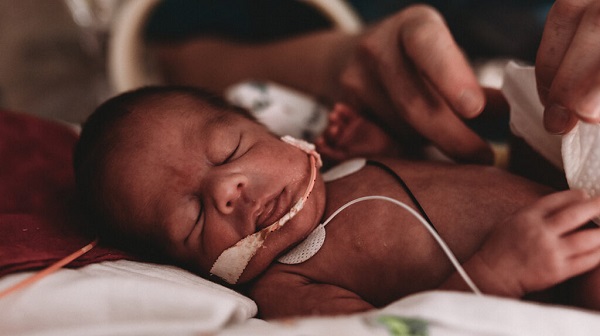
Chair of the Senate Committee on Health, Dr. Ipalibo Banigo has called for enhanced maternal and child health services, emphasising that “every baby deserves a chance for life.”
Banigo made this statement on Thursday in Abuja during the official launch of a stillbirth dashboard, aimed at improving the visibility of stillbirth data to guide better decision-making and reduce preventable stillbirths in Nigeria.
The project, titled “Improving Nigeria’s Capacity to Use Data on Registered Stillbirths for Decision Making and Planning” (SPEED project), was implemented by the Institute of Human Virology Nigeria (IHVN) through its International Research Center of Excellence (IRCE). The 15-month project, which began in September 2023, focuses on utilising stillbirth data to shape policy decisions that address the root causes of stillbirths in the country. The initiative is a collaboration between Vital Strategies Inc., Bloomberg Philanthropies’ Data for Health Initiative, and Nigeria’s Federal Ministry of Health.
“Every baby deserves a chance for life. These babies have a destiny to fulfill. The real-time insights from this tool will help us achieve significant reductions in maternal and newborn mortality,” Banigo stated. She emphasised her commitment to ensuring that agencies are held accountable for translating data into concrete actions that can save lives. Drawing from her experience in Rivers State, she noted that collaboration with stakeholders helped reduce HIV-related maternal deaths by removing barriers to accessing antiretroviral therapy (ART). She highlighted this model as an effective approach to tackling broader health challenges.
The senator praised the dashboard’s ability to gather data from primary healthcare centres (PHCs) across the country. However, she stressed the importance of incorporating data from secondary and tertiary healthcare institutions to provide a more comprehensive understanding of the challenges facing Nigeria’s healthcare system. She also committed to legislative oversight to ensure healthcare providers are accountable for turning stillbirth data into action, pledging to include this data in future health facility assessments.
Banigo advocated for forward-thinking legislation to meet Nigeria’s evolving healthcare needs and stressed the importance of a multi-sectoral approach to improving maternal and child health. She called for increased community engagement in health awareness campaigns and emphasised the role of community health committees in identifying and addressing grassroots health challenges.
Principal investigator of the SPEED Project at IRCE-IHVN, Ms. Oghome Emembo echoed Banigo’s call for urgent, data-driven action. She noted that addressing stillbirths is not just a healthcare issue but a shared national responsibility. “The event marks a pivotal moment to utilise data and evidence to create strategies that actively reduce stillbirths. This requires system and process changes with a focus on tangible results,” Emembo said. She emphasised that each stillbirth represents a national economic and social loss, as it signifies the loss of future potential for the country.
Data lead at IHVN, Mr. Oyewale Oyedele presented findings from the SPEED project, revealing troubling trends in Nigeria’s stillbirth rates. He reported a national stillbirth rate (SBR) of 24 per 1,000 total births, which is double the target set by the ‘Every Newborn Action Plan’ (ENAP) for 2030, which aims for 12 per 1,000 births. Between 2014 and 2023, Nigeria recorded over 404,000 stillbirths, with Katsina State reporting the highest number (45,034) and Ekiti State the lowest (1,047).
Oyedele pointed to significant regional disparities, with the northwestern region bearing a disproportionate burden of stillbirths. Katsina and Zamfara states recorded stillbirth rates of 53 and 52 per 1,000 births, respectively – more than double the national estimate. In contrast, Ogun and Osun States have met the ENAP target. He also noted that 61 per cent of stillbirths in Nigeria are macerated, with Delta, Adamawa and Oyo States contributing most to this trend, suggesting gaps in antenatal care and early detection of fetal distress.
Mr. Edward Kombo, Development and Health Information Lead at IHVN, acknowledged that the data primarily comes from PHCs, which could limit the comprehensiveness of the findings, as data from secondary and tertiary healthcare facilities are not included. “This limitation should be acknowledged when analysing or interpreting the data,” Kombo cautioned.
The launch coincided with National Stillbirth Prevention Day, which aims to raise awareness about stillbirth – a public health crisis that affects families across Nigeria. Experts noted that stillbirth risks are higher in rural areas with limited access to prenatal care and birthing facilities. They also highlighted racial and economic disparities, which exacerbate the issue.
Despite the profound impact of losing a baby late in pregnancy, stillbirth remains an under-discussed issue. Many parents only encounter the term “stillbirth” after experiencing the tragedy. Experts continue to stress the need for national attention and preventive measures to address this overlooked crisis.

